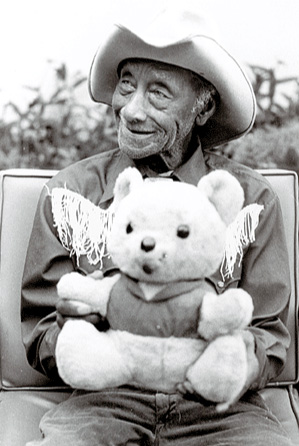Some people tell a certain story at a particular time and everyone wants to believe it, even though it couldn’t possibly be true. Usually, these tall tales have something to do with unattainable wealth of one kind or another and our deep desire to possess it. Charlie Smith was just such a storyteller and his fortune was longevity. No one will argue that he didn’t have a very good run, but Smith didn’t make it as close to 137 as he wanted people to believe.
Smith became something of a minor celebrity in the 1960s-70s with his “memories” of life on plantations and on the frontier, claiming to have been born in 1842 (though documents uncovered later put lie to these assertions). His renown grew to the point that he was invited to watch the moon launch at the Kennedy Space Center. He doubted aloud (without irony) that the space mission was anything but a hoax.
Life magazine took Smith very seriously in 1972, seven years before he died, providing an interesting story if not a factual one. An excerpt from the article:
A researcher from the Martin Luther King Center in Boston traveled to Barstow, Florida, late last month to stick a microphone into the deeply furrowed face of Charlie Smith. The purpose was to add Smith’s recollections to the center of the black oral history bank.
What could this retired candy store owner from backwoods Florida have to offer? Among other things, memories of slavery, the Civil War and Jesse James.
Charlie Smith has become the object of historical research because he has obtained the incredible age of 130. He is the oldest living American.
For three hours Smith talked into the tape recorder, and even sang a couple of frontier ballads. He described being lured onto a slave ship in Liberia by tales of ‘fritter trees’ in far-off America, then being put on an auction ship in New Orleans. He wound up on a Texas plantation owned by a Charlie Smith, whose name he adopted. Freed during the Civil War, Smith told of years as a cowpuncher, gambler, bootlegger and outlaw.
“Ain’t nobody ever shot Jesse James,” Smith insists, contrary to historical legend. “He’s dead now, but nobody ever killed him.”
The fine line between fact and fiction sometimes seems to blur in Charlie Smith’s ancient mind. The Social Security Administration verified one thing, however: his age. Its confidence is based on an 1855 bill of sale of a 12-year-old Negro in the New Orleans slave market.•

